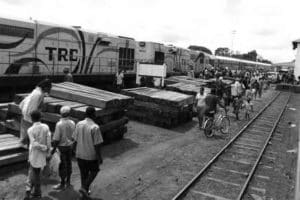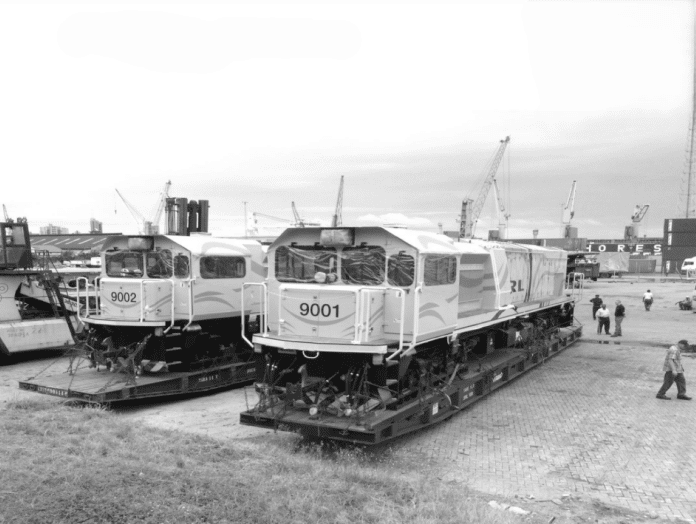Introduction to Tanzania’s Railways
Tanzania’s railway system has long been a vital component of the country’s transportation infrastructure, connecting cities, facilitating trade, and supporting economic growth. However, the system has faced challenges in recent years, with aging infrastructure and limited reach hampering its full potential. As the nation looks to the future, a transformative project has emerged that promises to revitalize Tanzania’s railways and unlock new opportunities for development.
The Importance of Rail Transportation in Tanzania

Rail transportation plays a crucial role in Tanzania’s economy, serving as a cost-effective and efficient means of moving goods and people across the country. With its expansive geography and diverse terrain, Tanzania relies heavily on its railway network to connect remote regions, facilitate the movement of agricultural products, and support the country’s burgeoning industrial sectors. Investing in the modernization and expansion of this vital infrastructure is, therefore, a top priority for the Tanzanian government and its development partners.
Overview of the Arusha Proposed Extensions Project
At the forefront of this effort is the Arusha Proposed Extensions project, a transformative initiative that aims to extend the existing railway network in the northern region of Tanzania. The project, which is being spearheaded by the Tanzania Railway Corporation (TRC), envisions the construction of new rail lines that will connect the city of Arusha to neighboring regions, opening up new economic opportunities and improving connectivity throughout the country.
Benefits of the Arusha Proposed Extensions
The Arusha Proposed Extensions project promises to deliver a wide range of benefits for the people of Tanzania. Some of the key advantages of this initiative include:
- Improved Connectivity: The new rail lines will connect Arusha to other major cities and economic hubs, reducing travel times and facilitating the movement of goods and people across the region.
- Enhanced Economic Development: The improved transportation infrastructure will support the growth of industries, such as agriculture, mining, and tourism, by providing efficient and cost-effective means of moving products and resources.
- Increased Access to Markets: The expanded railway network will give farmers and small businesses in the Arusha region better access to national and international markets, enabling them to reach a wider customer base and increase their earnings.
- Environmental Benefits: By offering a more sustainable alternative to road transport, the Arusha Proposed Extensions project has the potential to reduce greenhouse gas emissions and contribute to Tanzania’s climate change mitigation efforts.
- Job Creation: The construction and operation of the new rail lines will generate employment opportunities, both directly and indirectly, providing economic opportunities for the local population.
Challenges and Obstacles in Implementing the Project
While the Arusha Proposed Extensions project holds great promise, it is not without its challenges. The project will require significant financial resources, robust planning, and effective coordination among various stakeholders to overcome obstacles such as:
- Securing the necessary funding and investment
- Navigating complex land acquisition and resettlement processes
- Ensuring the project’s environmental and social sustainability
- Coordinating with local communities and addressing their concerns
- Developing the necessary technical and operational capabilities
Economic Impact of the Arusha Proposed Extensions
The economic impact of the Arusha Proposed Extensions project is expected to be substantial. By improving transportation efficiency, reducing logistics costs, and enhancing market access, the project has the potential to drive economic growth and development in the Arusha region and beyond. Some of the key economic benefits include:
- Increased trade and investment opportunities
- Improved productivity and competitiveness of local industries
- Expanded access to domestic and international markets
- Job creation and increased employment opportunities
- Increased tax revenues for the government
Environmental Considerations of the Project
As Tanzania continues to prioritize sustainable development, the Arusha Proposed Extensions project has also placed a strong emphasis on environmental considerations. The project’s design and implementation will aim to minimize the environmental impact, including:
- Adopting energy-efficient and low-emission technologies
- Implementing measures to protect sensitive ecosystems and wildlife habitats
- Promoting the use of renewable energy sources in railway operations
- Incorporating sustainable waste management practices
Stakeholder Involvement and Community Engagement
The success of the Arusha Proposed Extensions project will depend on the active involvement and engagement of a wide range of stakeholders, including local communities, government agencies, private sector entities, and development partners. The project’s implementation will involve:
- Extensive public consultations to gather feedback and address concerns
- Collaborations with local authorities and community leaders
- Partnerships with the private sector to leverage expertise and resources
- Coordination with international development agencies and donors
Progress and Future Plans for the Arusha Proposed Extensions

The Arusha Proposed Extensions project is currently in the early stages of planning and development. The Tanzania Railway Corporation (TRC) has already conducted feasibility studies, secured initial funding, and begun the process of obtaining the necessary approvals and permits. In the coming years, the project is expected to move forward with the following key milestones:
- Detailed design and engineering studies
- Land acquisition and resettlement activities
- Construction of the new rail lines and supporting infrastructure
- Commissioning and testing of the completed railway system
- Gradual expansion and integration with the broader national railway network
Conclusion: The Potential Transformative Impact of the Project on Tanzania’s Railways
The Arusha Proposed Extensions project represents a pivotal moment in the transformation of Tanzania’s railway system. By enhancing connectivity, fostering economic growth, and promoting sustainable development, this initiative has the potential to serve as a blueprint for the modernization and expansion of the country’s entire railway network. As Tanzania continues to chart a course towards a more prosperous and equitable future, the successful implementation of the Arusha Proposed Extensions project will be a crucial step in realizing this vision.
For more articles related to Railway and train travel Tanzania, click here!

































